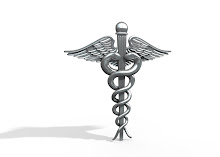
NEW YORK, USA, 25 February 2008 – UNICEF and IKEA are re-igniting enthusiasm for reading amongst a generation of children in Albania who have been deprived of books.
For almost two decades, libraries have been repurposed and school budgets slashed while the government has focussed on transitioning to democracy. Books have become a scarce and expensive commodity, out of reach for many poor families. The resulting dearth of literature has left well over half of Albanian 15-year-olds unable to complete more than the simplest reading tasks.
“At home I only have three books,” explains Ermedina Hoxha, 13. “The last books the school library received was six years ago but they are inappropriate. We also have books from the old Communist era. If you go to Peshkopi Library they have few books for children – sometimes only one copy.”
‘Learn to read, read to learn’
With €1 million from UNICEF’s largest corporate donor, the Swedish home furnishing retailer IKEA, the ‘Albania Reads’ project aims to open a library in each of 850 schools. In collaboration with the government, libraries have already opened in 160 schools – to the delight of
children and teachers alike.
“What’s best is that the Albania Reads project works with the Ministry of Education so that the books we receive are the same books that children need in literature classes,” says Musa Nikolai, the teacher in charge of the new library at the school in Katundi i Ri.
Forty minutes from Ermedina’s hometown, Katundi i Ri is a small farming community
and typical of the target communities at the heart of Albania Reads.
Many children have no books at home, and it is not uncommon for girls to drop out of school at the age of 13.
“We know reading is very important for learning,” says UNICEF Representative in Albania Carrie Auer. “First you learn to read and then you read to learn. So if we want continuous achievement in school, reading is important.”
Re-establishing the culture of literacy
It is not only schoolchildren who benefit from the project. With the ability to check out books to take home, children are able to share them with parents and siblings. Extending the reading experience to the whole family can help to raise literacy levels across the entire society.
At the same time, teachers are being trained in new techniques to encourage reading, and an Albania Reads awareness campaign is planned to help re-establish the country’s
culture of literacy. Also in the works are a children’s magazine and a national literary award with winners to be decided by young people.
IKEA’s contribution to Albania Reads was part of a $10.5 million donation to UNICEF in 2007. Since 2001, IKEA has given UNICEF a total of $46.2 million to help improve the lives of children around the world.
The children are in desperate need of education!Why not help them?






 acces this link: http://www.unicef.org/voy/
acces this link: http://www.unicef.org/voy/
